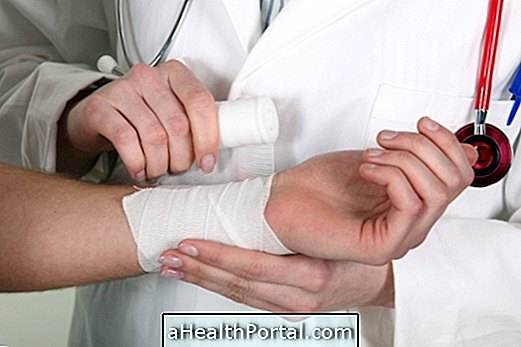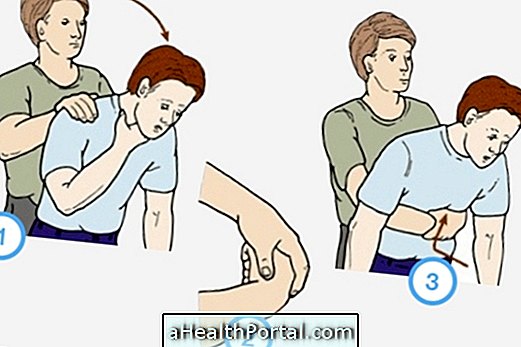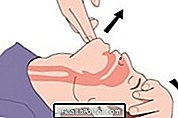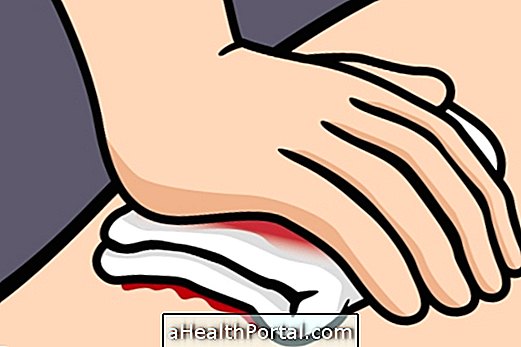Symptoms of allergy to a medicine can arise immediately after taking an injection or inhaling the medicine, or within 1 hour after taking a tablet.
Red and swollen eyes are warning signs, and in this case it should be noted if there are more serious symptoms such as swelling of the tongue that prevents the passage of air. If there is such suspicion you should call an ambulance or take the victim to the emergency room as soon as possible.
Some medications such as ibuprofen, penicillin, antibiotics, barbiturates, anticonvulsants and even insulin have a very high risk of causing allergy, especially in people with hypersensitivity to these substances. However, the allergy can also arise even when the person has already taken the remedy before and never caused any kind of reaction.
See remedies that usually cause drug allergy.
Less serious signs:
- Itching and redness in a region of the skin or throughout the body;
- Fever above 38ºC;
- Feeling of a runny nose;
- Red, watery, and swollen eyes;
- Difficulty opening eyes.
What to do:
If these symptoms are present, an allergy medicine, such as hydroxyzine, may be taken as a tablet. When the eyes are red and swollen, placing a cold saline compress over the eyes helps to reduce swelling and discomfort. If there is no improvement in 1 hour, you should go to the ER. You should also go to the emergency room immediately if there are any more serious signs.


More serious signs
Drug allergy can also lead to the onset of anaphylaxis, which is a serious allergic reaction that can endanger the patient's life, presenting symptoms such as:
- Swelling of the tongue or throat;
- Difficulty breathing;
- Dizziness;
- Feeling of fainting;
- Mental confusion;
- Nausea;
- Diarrhea;
- Increased heart rate.
What to do:
You should call an ambulance or take the person immediately to the hospital because it is life-threatening. In the ambulance, first aid can be started and treatment is started with the injection of antihistamines, such as Hydroxyzine or Cetirizine, directly into the vein to relieve swelling and itching, and the use of nebulizations with bronchodilator drugs such as Budesonide or Salbutamol, to facilitate breathing.
In the case of an anaphylactic reaction, in addition to the medications indicated above, the treatment is also done with injections of adrenaline and the patient should stay hospitalized for a few hours so that their vital signs are constantly evaluated, preventing anaphylactic shock from occurring again .
Usually it is not necessary to stay in the hospital and the patient is discharged as soon as the symptoms disappear.
Learn about First Aid for Anaphylactic Shock
Is it possible to avoid this allergy?
The only way to avoid having an allergy to a particular drug is not to use this medicine. Thus, if you have previously developed allergy symptoms after using the medication or are told that you are allergic to a particular remedy, it is important to notify doctors, nurses and dentists before starting any treatment. Once the person develops allergy to the drug, they should not use it again because there is a risk of an even more serious reaction.
Always having the information that you have allergy to some medication is a good way to avoid using it, but another possibility is to always use a bracelet with the type of allergy, indicating the names of each medicine.
How do I know if I have an allergy to any medicine
The diagnosis of allergy to a particular drug is usually made by the general practitioner through observation of the clinical history and symptoms developed after the use of the medicine.
But in addition, the doctor may ask for an allergy test that consists of applying a drop of the medicine to the skin and watching the reaction. However, in some cases, the risk of taking the test is very high, so the doctor can diagnose the allergy only based on the patient's history, especially when there are other drugs that can replace the drug. Learn more about this form of early identification of drug allergy in: Allergy test.





















